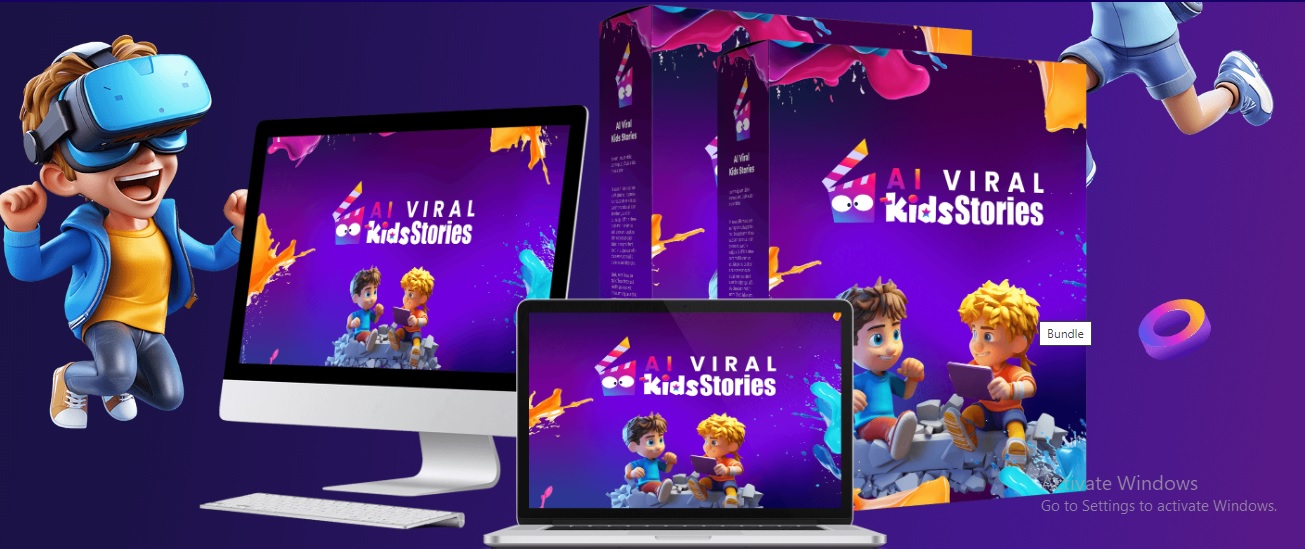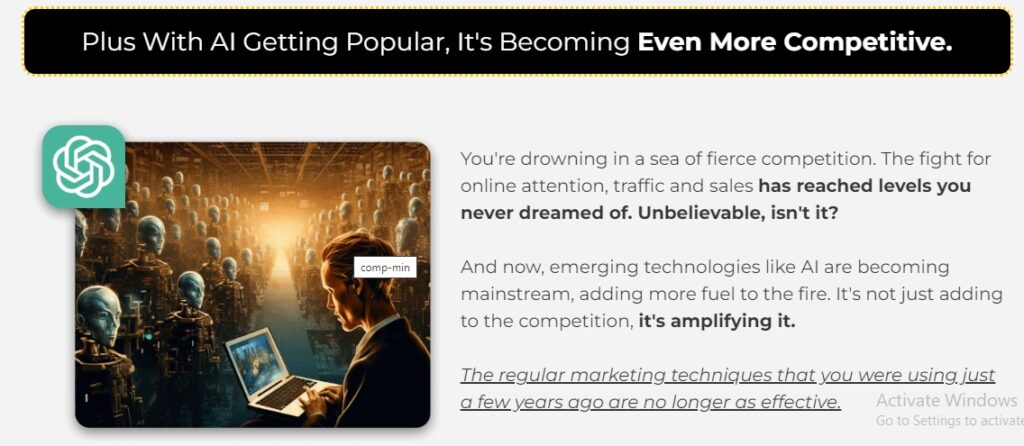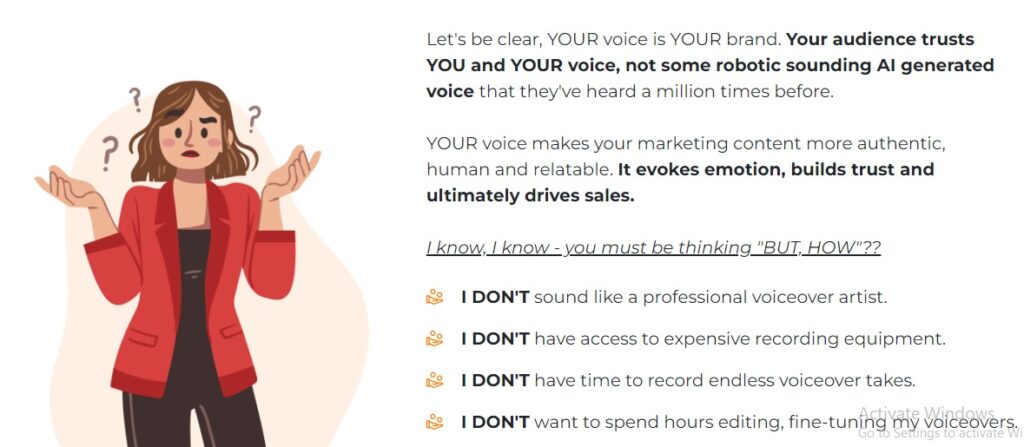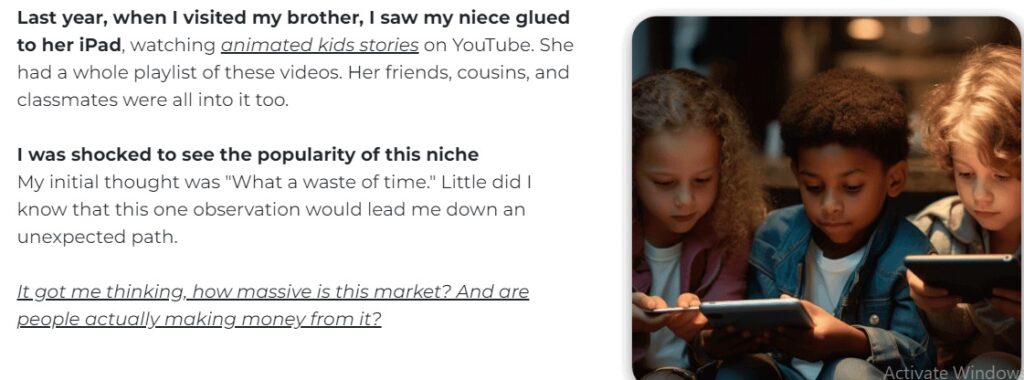
Exploring the Phenomenon of AI-Generated Viral Kids Stories: A Review
Introduction of AI Viral Kids Stories:
In the age of artificial intelligence (AI), storytelling takes on a new dimension with the emergence of AI-generated content. One fascinating aspect of this development is the rise of AI-generated viral kids’ stories. These stories, crafted by algorithms rather than human authors, have garnered significant attention across digital platforms, captivating young audiences worldwide. In this review, we delve into the landscape of AI-generated viral kids’ stories, examining their characteristics, impact, and implications for storytelling and childhood development.
Characteristics of AI-Generated Viral Kids Stories:
It exhibit distinct characteristics that contribute to their widespread popularity. Firstly, they often feature simplistic yet engaging narratives tailored to capture the imagination of young minds. These stories leverage familiar themes, such as friendship, adventure, and overcoming challenges, resonating with children’s innate sense of curiosity and wonder.

>>Click instant access and other details<<
AI-generated stories are characterized by their adaptability and scalability.
AI algorithms can swiftly generate an endless stream of stories, catering to diverse preferences and cultural backgrounds. This versatility enables content creators to produce a continuous flow of fresh, captivating narratives, sustaining children’s interest over time.
Furthermore,
It frequently incorporate interactive elements, such as animations, sound effects, and interactive prompts. These immersive features enhance the storytelling experience, fostering greater engagement and interactivity among young audiences
Impact on Children and Society of AI Viral Kids Stories:
The proliferation of it has significant implications for children’s cognitive, emotional, and social development. On the positive side, these stories stimulate creativity and imagination, encouraging children to explore new ideas and perspectives. They also promote literacy skills by exposing children to language-rich narratives and vocabulary.
Moreover of AI Viral Kids Stories:
, AI-generated stories can serve as valuable educational tools, imparting moral lessons, problem-solving skills, and cultural awareness. Through storytelling, children learn to empathize with characters, navigate ethical dilemmas, and appreciate diversity, fostering empathy and compassion.

>>Click instant access and other details<<
However,
concerns have been raised regarding the potential effects of AI-generated content on children’s development. Critics argue that reliance on algorithmically generated stories may stifle children’s creativity and critical thinking skills, limiting their exposure to diverse storytelling styles and cultural traditions.
Furthermore,
there are apprehensions regarding the ethical implications of AI-generated content, including issues of data privacy, algorithmic bias, and depersonalization of storytelling. As AI algorithms shape the narratives consumed by young audiences, questions arise about the transparency and accountability of content creation processes.
Future Directions and Ethical Considerations:
As the phenomenon of it continues to evolve, it is essential to address ethical considerations and promote responsible content creation practices. Content creators and platform providers must prioritize transparency, accountability, and child safety in the development and dissemination of AI-generated content.
Moreover,
efforts should be made to diversify representation and foster inclusivity in AI-generated stories, reflecting the rich tapestry of human experiences and cultural heritage. Collaborations between AI developers, storytellers, educators, and child psychologists can ensure that AI-generated content aligns with ethical guidelines and best practices.
Furthermore,
research is needed to assess the long-term impact of AI-generated viral kids’ stories on children’s cognitive development, socialization patterns, and emotional well-being. By studying the effects of AI-generated content in real-world contexts, policymakers and stakeholders can make informed decisions to safeguard children’s rights and promote healthy digital environments.
Conclusion of AI Viral Kids Stories:
The emergence of it represents a paradigm shift in storytelling, harnessing the power of technology to engage and inspire young audiences. While these stories offer exciting opportunities for creativity, education, and entertainment, they also raise important ethical considerations and challenges. By fostering collaboration, transparency, and ethical awareness. We can harness the potential of AI-generated storytelling to enrich children’s lives and promote positive societal outcomes.
